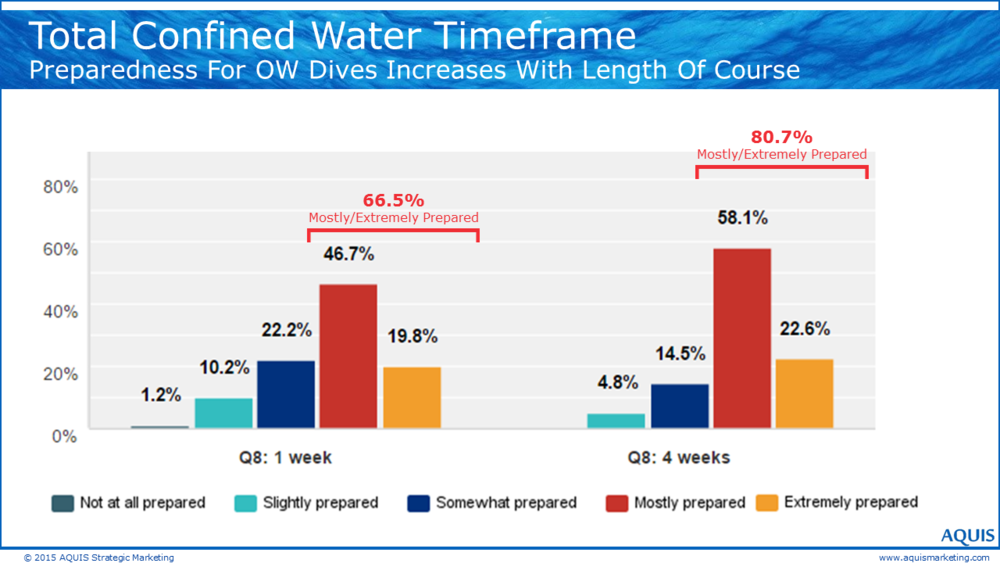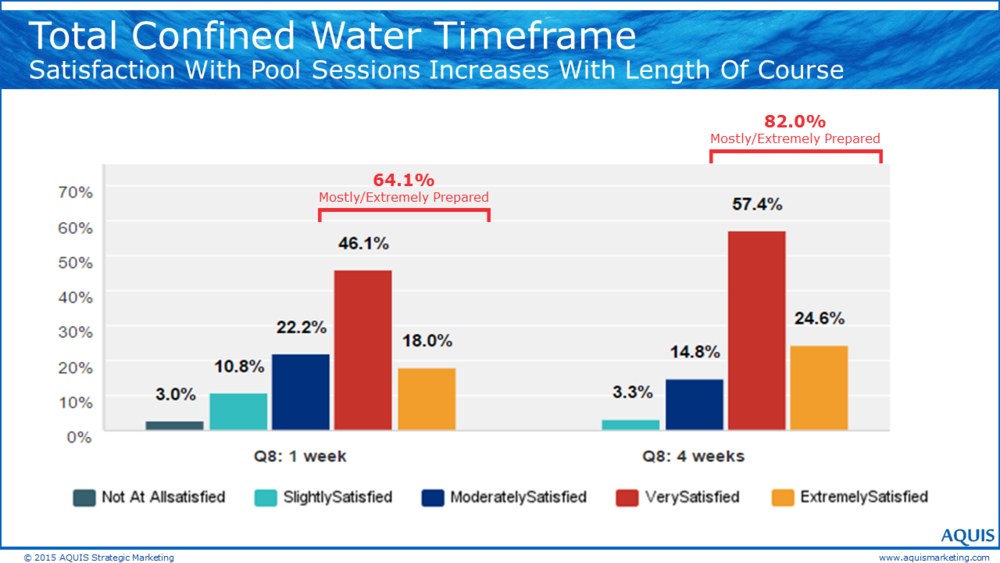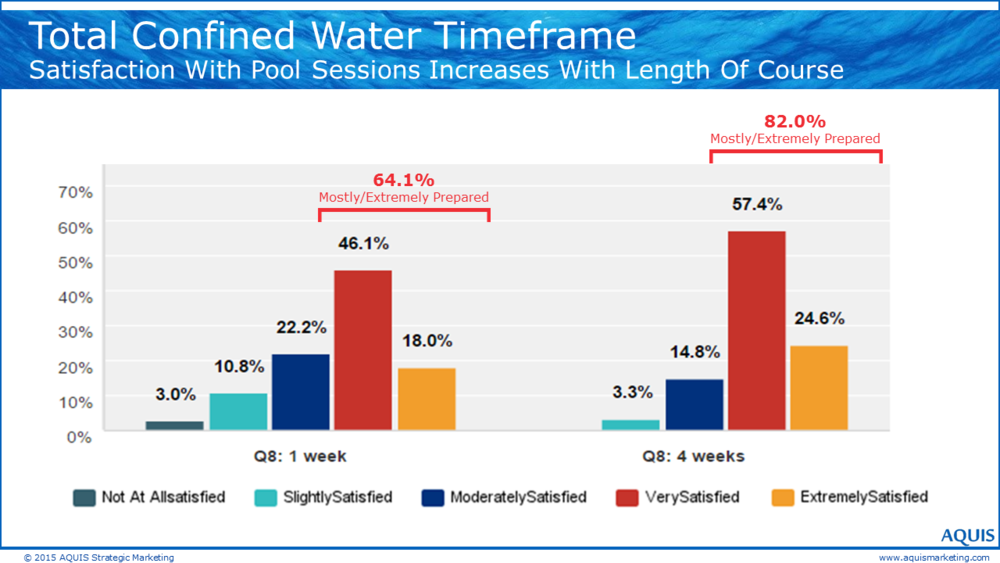Yes. But HOW do we "show" students that they will be less satisfied in the long run by taking the "quickest route", while they are still in training? What does this conversation sound like?
As others have mentioned, this is a "Catch-22" of scuba training ... a student won't realize until much later on (if ever) whether they were trained well or inadequately.
This is my dilemma as I explain to students why my Open Water class will take 30+ combined hours of classroom, pool and ocean time. At this point in their training, very few students know what type of instruction they want ... they just want to get a C-card.
I do my best to explain, but I know they won't really "get it" until later.
You have described the original rationale for paring down the original PADI OW course into a course whose water work can be completed in a weekend (in an ideal "no transportation time and no thermal issues" area).
This pared down course is in fact what almost all the agencies have realigned their beginner level courses to be, recogniznig that the vast improvement in equipment, and the use of educational theories in developing the educational materials could be used to improve (and dramatically shorten) the course.
And this could get more people into the sport, even while dramatically increasing the safety of the sport. Which is what happened. These "less capable" divers taking a vastly shorter course, still managed to make diving both much larger and much safer. This is pretty damn stunning, and refutes all of what old fogies think about these damn kids getting licenses today.
Unfortunately, it's some instructor's self-importance that has brought about "feature creep" back in to the OW course where some instructors (most especially those who congratulate themselves on teaching 6 week course, and writing books about open water courses) have with no defensible rationale, tried to re-expand the shortened OW course back out to the old OW course length.
But these modern instructors themselves learned in the short courses. Even if they took the sort from a disorganized, self-aggrandizing instructor who took forever to actually deliver the short course content.
It is only because they, having become instructors, magically anointed themselves with unearned wisdom that they think re-expanding the time back out to a long course is of some benefit to anyone or anything. It benefits the instructors ego apparently,
but it does not benefit the student, the dive center, or the industry.
And more importantly, the basic abilities of an scuba divers from the pre PADI OW course just make most modern instructors look incapable, so one has to consider how this instructor justifies expanding the short course anyway. Every time I mention that I think it is no big deal to do CESAs from 100 ft, and even suggest that DMs and instructors actually in the business of guiding divers to these depth should consider that a basic ability because the situation might come up, I get incredulous reaction from people who think of themselves as expert divers and instructors. But the old-timers know that this is just a thing one might have to do, because CESAs from deep depths were how people without gauges got to the surface when their J-Valve got knocked out of reserve position.
So we got instructors who don't themselves have the basic ability to justify anything longer than a short course trying to lengthen a course. Which is the bull-pucky, if there is any bull pucky.
Now it is a question (or it is should be the question) of how to deliver the short course content in a way that meets the student's, dive center's and industry's long term needs.
And that's what RJP's survey should be used to do.
Trying to read it as a justification of lengthening the open water course is misreading (or not knowing) the history of the dive industry. (And it is not benefting anyone.)
The Instructor who feel they are so wise that the world simply cannot live without their brilliance can just learn to shut up, and then they don't have to worry about justifying a longer course to anyone. Because they too can deliver a content rich, yet short course. All they really have to do is bite their tongue, shaddap they face, and logically arrrange the course. And the long course magically becomes a short course.






